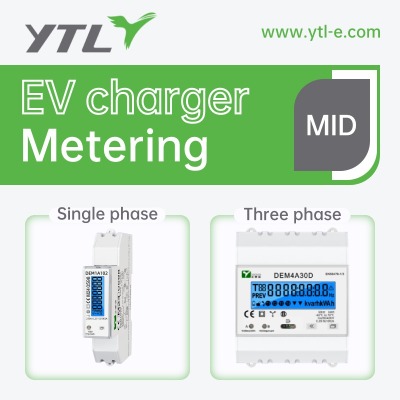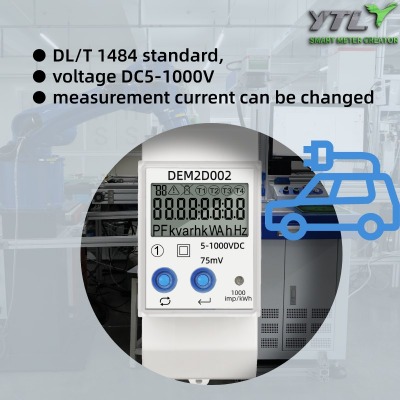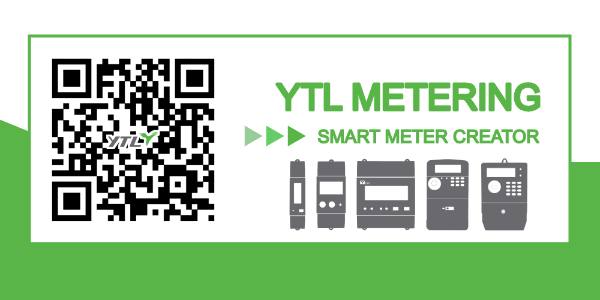
Types of Energy Meters Suitable for EV chargers
1. Single-Phase MID Energy Meter
l Technical Specifications:
Ø Power Measurement Range: Typically supports a range of 5-100A, suitable for voltages below 230V.
Ø Accuracy: Complies with MID standards, usually rated at Class 1 or Class 2.
Ø Functions: Includes monitoring of instant power, cumulative energy, and demand.
l Application Scenarios:
Ø Ideal for residential homes or small commercial setups for electric vehicle charging.
Ø Sufficient for basic charging requirements in simpler charging environments.
2. Three-Phase MID Energy Meter
l Technical Specifications:
Ø Power Measurement Range: Capable of measuring higher power levels, such as 60A to 100A or more, suitable for three-phase electrical networks.
Ø Accuracy: Meets MID standards, typically rated at Class 0.5 or Class 1, making it suitable for commercial use.
Ø Functions: Supports multi-parameter monitoring such as voltage, current, power factor, and frequency.
l Application Scenarios:
Ø Widely used in commercial charging stations, large parking lots, and public charging facilities.
Ø Suitable for locations requiring high-power EV chargers, ensuring charging efficiency and safety.

3. DC Single-Circuit Energy Meter
l Technical Specifications:
Ø Measurement Range: Generally supports up to 2000A, with a rated voltage range below 1000V.
Ø Accuracy: Typically rated at Class 0.5 or Class 1, ideal for high-frequency electronic device measurements.
Ø Functions: Supports real-time monitoring of charging current, voltage, and power.
l Application Scenarios:
Ø Used in DC fast charging stations, capable of delivering significant amounts of energy to electric vehicles in a short time.
Ø Critical for charging infrastructure, suitable for highway service areas and commercial charging stations.
4. DC Master-Slave Energy Meter
l Technical Specifications:
Ø Comprises a master meter and several slave meters, with the master meter measuring total energy consumption.
Ø Slave meters are adaptable to various EV chargers, with power and current specifications defined by specific needs.
Ø Supports various communication protocols for centralized data management.
l Application Scenarios:
Ø Suitable for large charging stations, effectively managing energy consumption across multiple EV chargers.
Ø Facilitates energy data allocation and summarization, assisting in accurate customer billing and energy consumption analysis.

Factors to Consider When Choosing an Energy Meter
1. Type of Energy Meter:
2. Rated Power and Current:
3. Accuracy Requirements:
4. Communication Functions:
5. Protection Rating:
6. Installation and Maintenance:
Future Development Trends
With the increasing prevalence of electric vehicles, the number of EV chargers continues to rise, leading to a growing demand for precise energy measurement. In the future, energy meters suitable for EV chargers may incorporate more advanced technologies:
1. Intelligent Features: Adoption of smart energy meters combined with Internet of Things (IoT) technology to enable remote monitoring, fault detection, and data analysis.
2. Multi-Functionality: Integration of additional functionalities, such as energy quality analysis and improved interference resistance.
3. Green Energy Management: Support for measuring and managing renewable energy sources (e.g., solar power), providing users with comprehensive energy usage information.
By understanding the various types of energy meters compatible with EV chargers and their applications, we can make informed decisions to optimize our charging infrastructure, enhance management efficiency, and provide users with accurate energy billing services.


 English
English 简体中文
简体中文










.png?imageView2/2/w/500/h/500/format/png/q/100)



